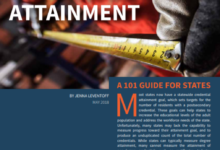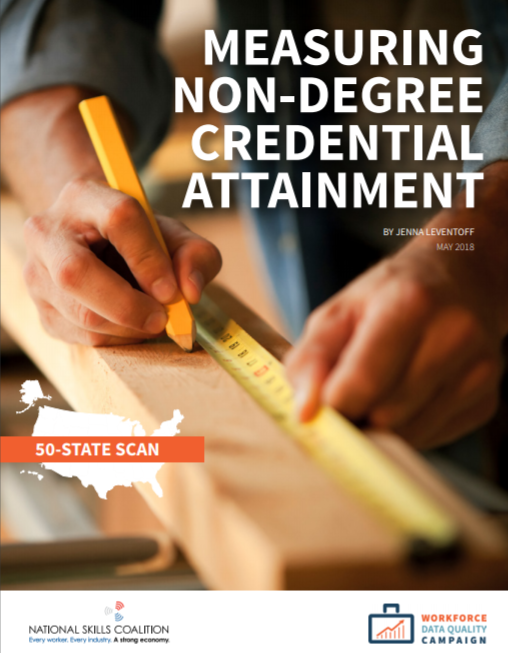Non-degree credentials, such as certificates and industry certifications, have value in the labor market. They can help states meet their postsecondary attainment goals and prepare residents for the workforce. This report from the National Skills Coalition and the Workforce Data Quality Campaign examines states’ progress on collecting data on non-degree credentials. Major findings from the report include:
- Overall, states are in the early stages of collecting data on individual attainment of non-degree credentials and incorporating that data into their state longitudinal data system;
- The majority of states report that they can break down data about their non-degree credential attainment by certain key demographics, such as race/ethnicity or age; and,
- Many states are hesitant to count all types of non-degree credentials towards their attainment goals and choose instead to count only credentials that they determine have value in the labor market or are otherwise “high quality;” and
- A total of 30 states report that they currently identify or plan to identify credentials of value at the state level.







